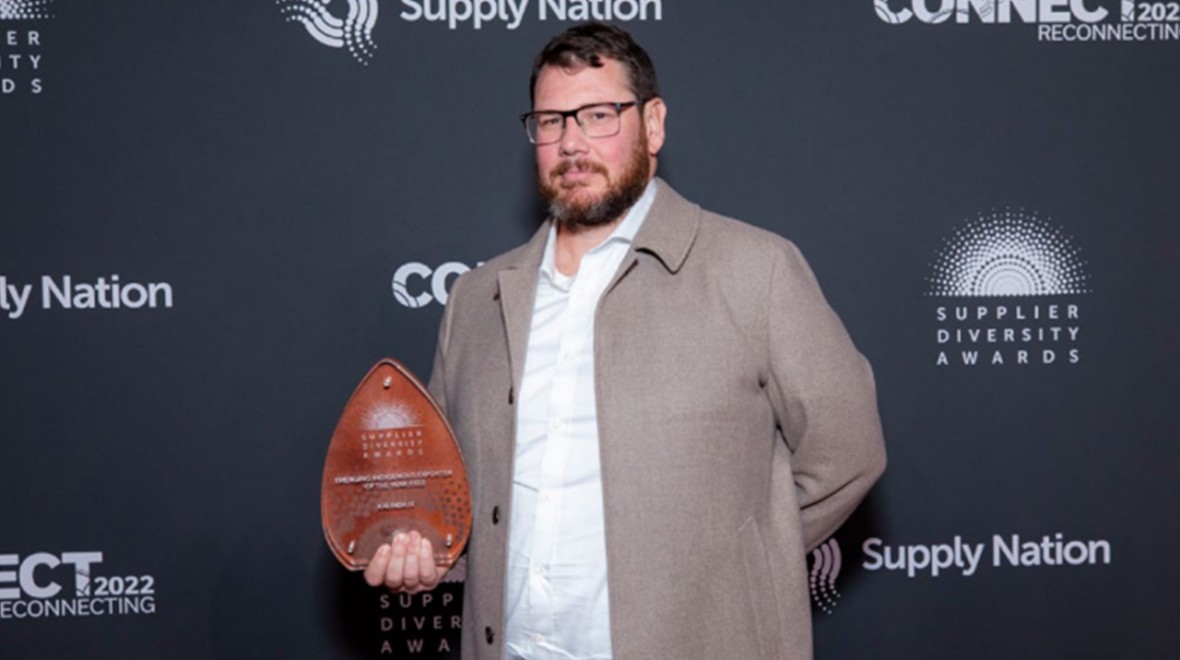Business
The Business Track will bring together ASEAN and Australian representatives to explore ways to strengthen our two-way trade and investment relationships.
The program will increase ASEAN and Australian business knowledge, address key priorities for two-way trade and investment, and build connections.
Track activities allow influential Southeast Asian and Australian business leaders to engage with Australia’s Southeast Asia Economic Strategy to 2040.
Key themes and activities
The Business Track will focus on key sectors identified in ‘Invested: Australia’s Southeast Asia Economic Strategy to 2040’, which offer the most potential to expand two-way trade and investment.
- CEO Forum – will bring together 100 Southeast Asian and Australian business leaders over one day to discuss the challenges and opportunities of increasing two-way trade and investment. It will include keynote speakers, roundtables, and plenary sessions.
- SME Conference – will focus on increasing Australian SME trade and investment into the region. It will focus on four key themes: Southeast Asia’s digital transformation; leveraging regional supply chains and investment; the ASEAN consumer economy; and food futures and agri-tech.
- Marketplace – an information and advisory services walk-through centre that will bring together trade and investment experts to provide advice to Australian SMEs interested in entering the Southeast Asian Market. Organisations invited to participate include government agencies, peak industry bodies and associations, and professional services organisations.
Fast Facts
- ASEAN is projected to become the world’s fourth-largest economy by 2040, after the United States, China and India, with an expected compound annual growth rate of 4% between 2022 and 2040.
- ASEAN is Australia’s second-largest two-way trading partner. In 2022, ASEAN accounted for $178 billion in two-way trade, $290 billion in two-way investment and represented five of Australia’s top 15 export markets.
- ASEAN and Australia are parties to the Regional Comprehensive Economic Partnership Agreement (RCEP), the world’s largest free trade agreement by members’ combined GDP. It accounts for a third of the world’s GDP.
- In August 2023, Australia signed the upgrade to the Agreement Establishing the ASEAN-Australia-New Zealand Free Trade Area (AANZFTA) – the first ASEAN trade agreement to feature a chapter on Trade and Sustainable Development.
(1) Source: Department of Foreign Affairs and Trade
Case Studies
Kalinda IT making inroads in Indonesia

Kalinda IT is a 100% Indigenous-owned Australian IT services business, winning the 2022 Supply Nation Indigenous Exporter of the Year award. Working across the Indo-Pacific delivering smart-tech digital services and infrastructure in collaboration with partners in the region, it has developed its own software focused on intelligent transport systems.
Building on 20-plus years of experience and relationships in the Indo-Pacific region, CEO Michael Dickerson has recognised the importance of taking a focused approach to the region. Kalinda IT will be exporting its technology to be used as part of the Electronic Road Pricing project in Jakarta, aimed at reducing traffic congestion, and will likely see Teknologi Karya Digital Nusa (TKDN) seeking to export electric buses and electric mopeds into the Australian market.
Kalinda IT’s experience represents an important example of Australian tech businesses successfully engaging in Southeast Asia, and provides lessons to others seeking to follow suit.
Supporting competition across ASEAN

Through the Regional Trade for Development Initiative and its predecessor, Australia has provided support to ASEAN partners to implement competition law. Through this support the Australian Competition and Consumer Commission has partnered with ASEAN counterparts to strengthen implementation of national consumer laws and grow regional cooperation on issues including scams and consumer protection in e-commerce.
Competition is an important driver for the regional economy which can impact all sectors. Competition has strong links with consumer protection and efficiency. The more competitive the market, the better the outcomes for consumers.
At the initiative's inception in 2014, only five of 10 ASEAN Member states had passed competition laws and only four competition agencies had been established. Now, all ASEAN Member States have implemented competition laws and established competition agencies.
|
Download Business fact sheet
PDF
778.47 KB
|